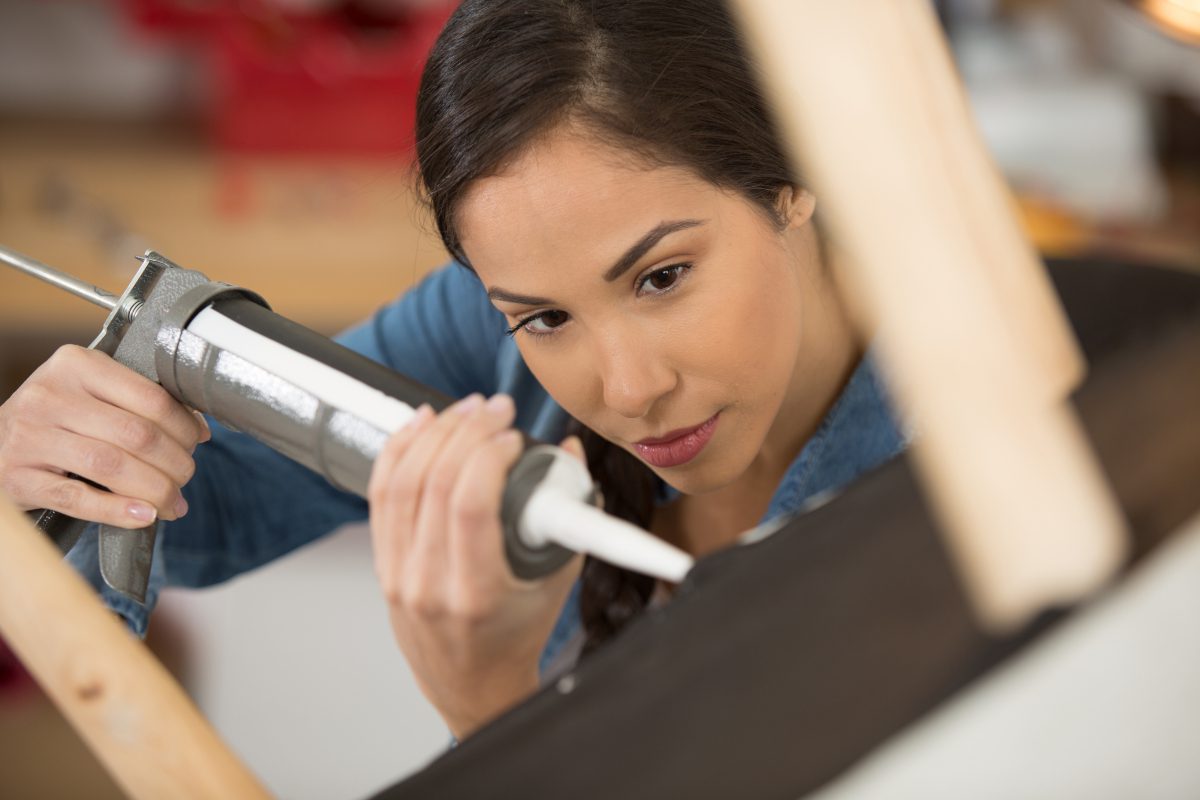
A new adhesive derived from materials including food waste should enable 90 percent of engineered wood products, such as furniture and construction boards, to become fully recyclable and help to develop a circular economy in this sector, says the firm marketing it.
The toxicity of the formaldehyde adhesives conventionally used here has restricted wooden furniture’s potential for recycling and incineration, with most construction panels and furniture made from engineered wood ending up in landfill. The new adhesive is claimed to be sustainable and non-toxic.
“Our glue is ethically sourced, has end-of-life biodegradability and has properties suited to replacing traditional formaldehyde adhesives,” says Callum Smith, one of the founders of the firm behind it, BindEthics, and also a student at the University of Birmingham. “As well as being fully recyclable the glue can be produced with almost no additional cost to the manufacturer and has a carbon footprint that is 86 percent lower than traditional adhesives.”
The group say they first explored the possibility of a base formulation for an adhesive derived entirely from waste in 2021. This included the purification of industrial food waste by washing, filtration and centrifugation. High protein content and polysaccharides contribute to binding while other natural crosslinkers and bioderived solvents are present in the formulation. In 2022 preliminary trials conducted at the Biorenewables Development Centre (BDC) in York were backed up by analytical experimental studies enabling the development of the first minimum viable product.
BindEthics say they are currently working with one of the three largest engineered wood companies in the UK and one of the UK’s largest packaging companies for technical insight. The company has several Letters of Intent from relevant partners including a European distributor.
“Our next step is to identify and conduct further commercial trials with companies which are currently using toxic and synthetic adhesives,” said Callum Smith. “A particular opportunity is with the corrugated board industry which is looking for alternatives to their starch-based adhesives which use borates, toxic substances imported into the UK. We are currently identifying companies using these starch-based adhesives, who wish to minimise their environmental impact, so they can trial our product.”
The group has received commercial, scale-up and lab-based support from the Biorenewables Development Centre in York under their European Regional Development Programme business assist scheme and Innovate UK. Additionally, it is receiving network access, business space and financial aid from the University of Birmingham and Innovate UK which help accelerate the innovation.
The particle board industry in the UK alone currently uses 1000 tons per day of urea-formaldehyde adhesive valued at £388 million annually. Globally, the value of the urea-formaldehyde market is £9.5 billion.
“BindEthics is showing how research and innovation has the potential to improve the recyclability of modern furniture and construction panels,” said Julian Beare, Chairman of the Armourers and Brasiers Venture Prize judging panel. “Our prize looks to encourage scientific entrepreneurship in the UK and provide funding to help innovative developments like this realise their potential.”
“Our vision is that our new bio-adhesive derived from food waste will replace a range of adhesives used across industry,” said Callum Smith. “The initial focus is on replacing the formaldehyde-based glues used in the manufacture of engineered wood products, but we also envisage applications for our sustainable adhesive within the shoe and automotive industries.”
An innovative new adhesive, derived from purified and refined industrial bio-waste, should enable 90 percent of engineered wood products, such as furniture and construction boards, to become fully recyclable and helping to develop a sustainable circular economy in this sector.








